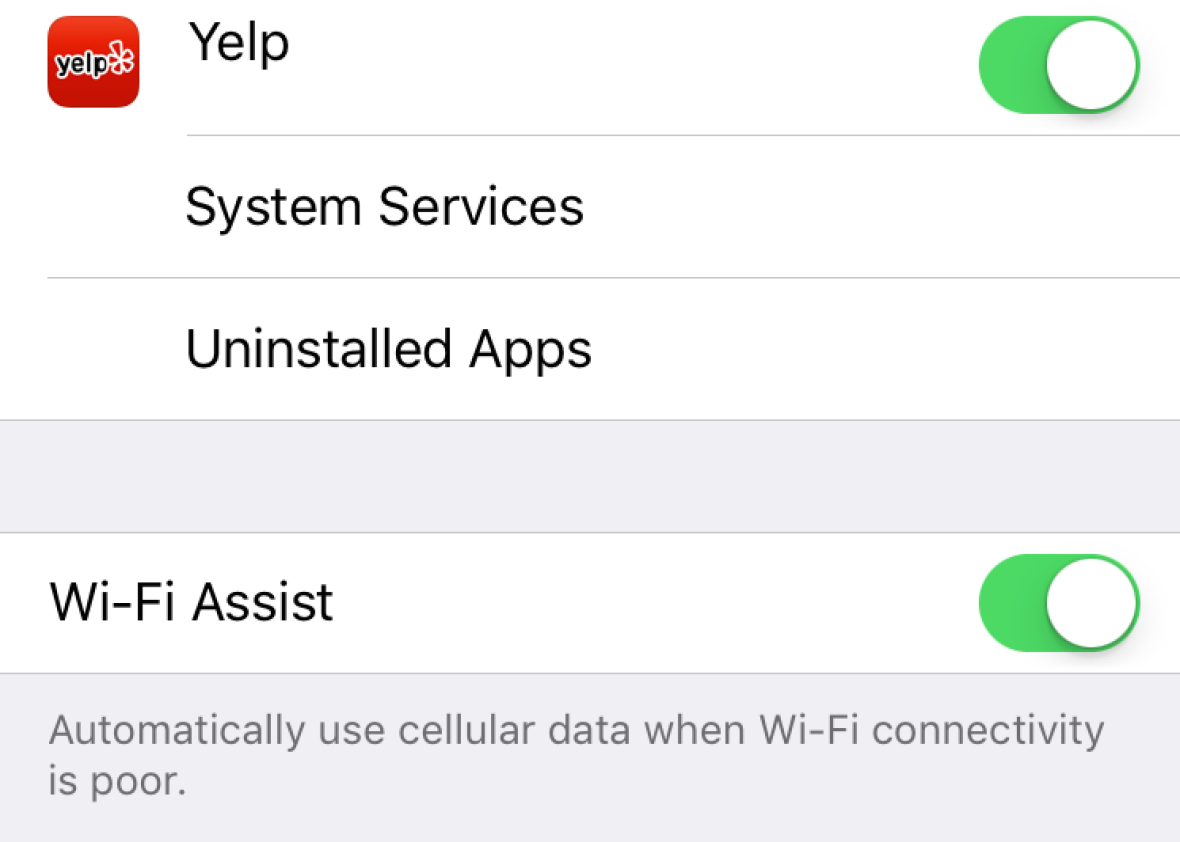Shortly before Apple released iOS 9, the tech press reported that the new operating system would include an “amazing feature” to fix the “most annoying thing about using Wi-Fi on the iPhone.” That feature was Wi-Fi Assist, an option that instructed the device to “automatically use cellular data when Wi-Fi connectivity is poor.”
Shortly after the update was released, though, it became clear that Wi-Fi Assist wasn’t quite as amazing as people had initially thought. In fact, it was kind of a problem. Users began reporting huge and unexpected increases in their mobile data consumption, with hefty overage charges to boot. Wi-Fi Assist was also automatically enabled for iPhone users once they upgraded to iOS 9. To turn it off, people had to dig through their settings (Mobile Data > scroll to bottom > Wi-Fi Assist), something they might not think to do until receiving that first confusingly large data bill.
Now, Apple is apparently being sued over the issue. Per Apple Insider, Apple is facing a class-action lawsuit claiming the company failed to properly alert users to the data-guzzling potential of Wi-Fi Assist:
The complaint asserts that Apple did not properly explain Wi-Fi Assist on its website until only after a “flood of articles” were written about unintended cellular data use. For the plaintiffs, that addition to the website was too little, too late.
“Defendant’s above corrective action, however, still downplays the possible data overcharges a user could incur,” the suit reads. “Reasonable and average consumers use their iPhones for streaming of music, videos, and running various applications—all of which can use significant data. Defendant’s corrective statement does not disclose any basis for its conclusion that an average consumer would not see much increase in cellular usage.”
The two plaintiffs on the complaint allege the overall damage related to Wi-Fi Assist tops $5 million. The suit was filed Friday in U.S. District Court in San Jose, California.
